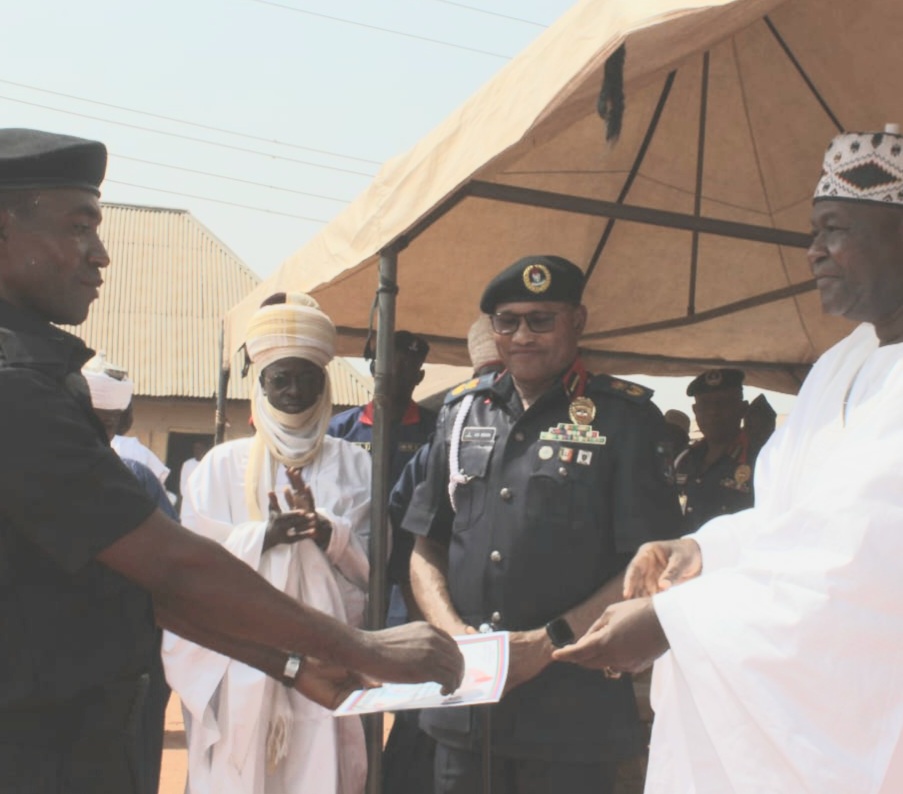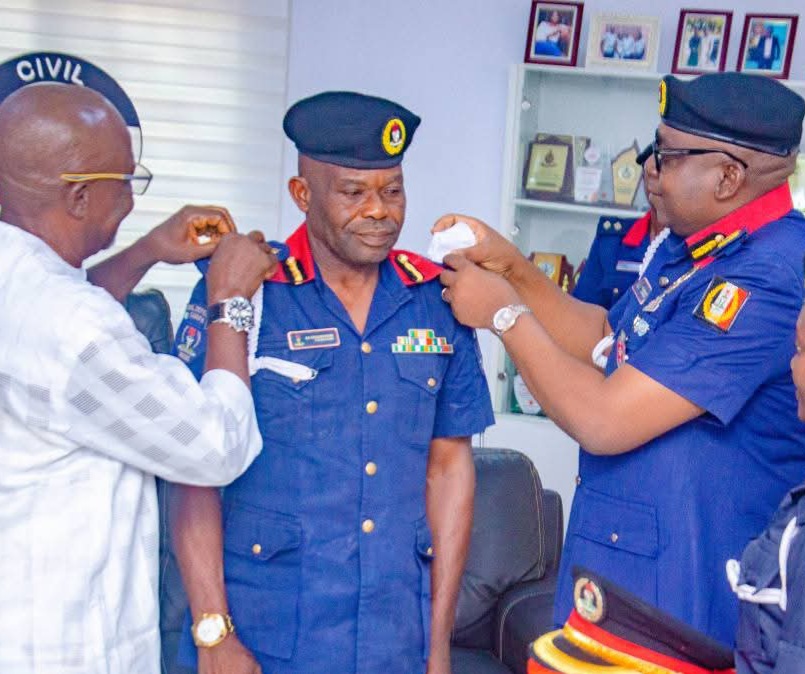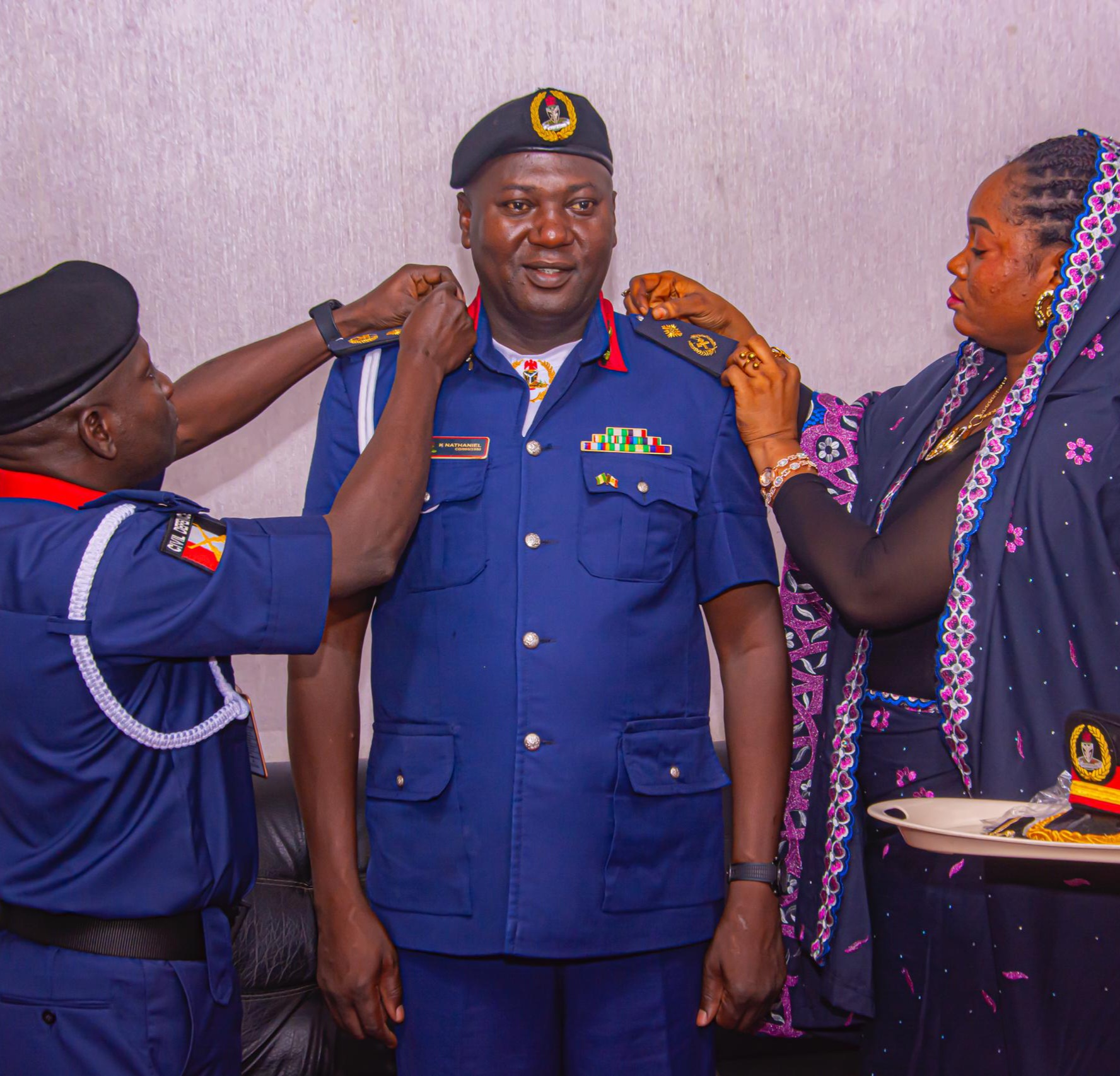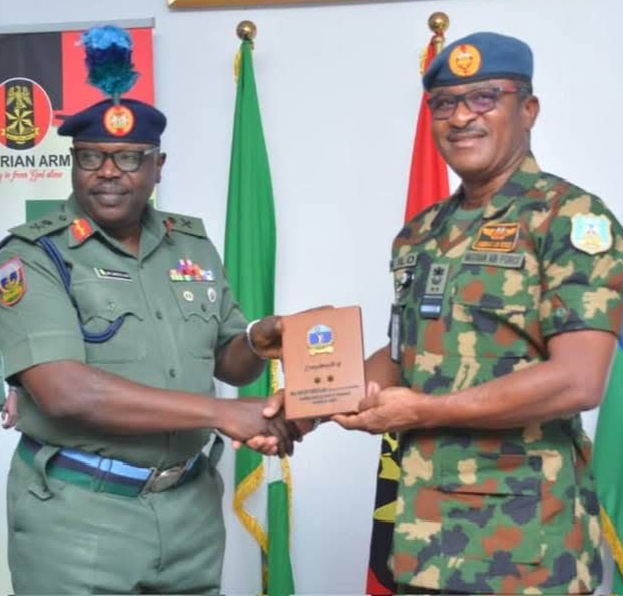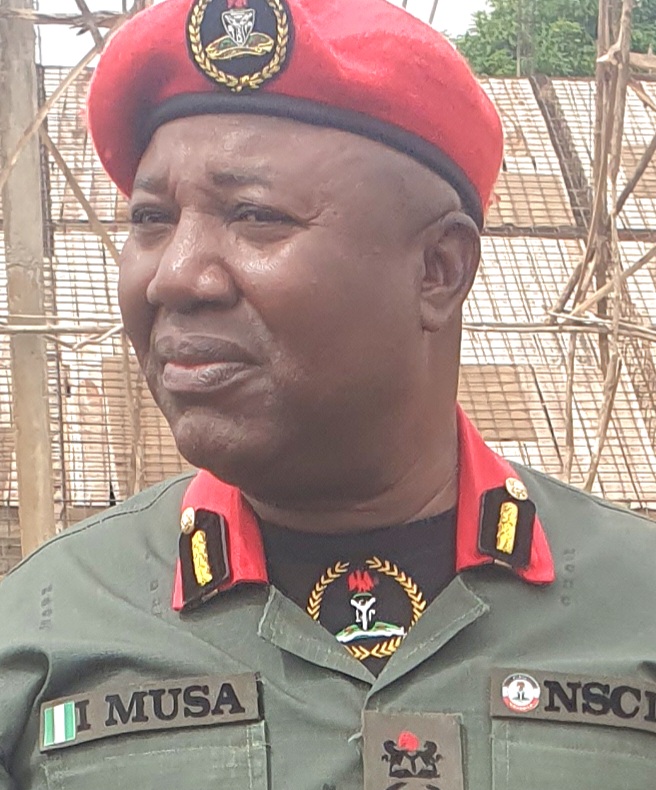
In the face of mounting security threats in Plateau State, the State helmsman of the Nigeria Security and Civil Defence Corps (NSCDC), Commandant Ishaku Musa, has renewed calls for strengthened cooperation among security agencies, traditional institutions, and community stakeholders.
The call came during a high-level stakeholders’ meeting held in Jos, where the Commandant emphasized the urgent need for coordinated action to confront the wave of violent crimes plaguing the state.
Plateau, a state historically scarred by communal violence, herder-farmer clashes, and armed banditry, has in recent months witnessed a troubling resurgence of deadly attacks. The latest occurred in the Bindi-Jebbu area of Riyom Local Government, where no fewer than 27 farmers were killed in a brutal attack that left dozens wounded and many others hospitalized. For Commandant Ishaku, this reality demands a renewed approach to security one rooted in synergy, intelligence-sharing, and collective resolve.
“We cannot afford to operate in silos anymore,” he said. “Our common enemy is insecurity, and it thrives when we work apart. The time has come to strengthen our ranks, share intelligence in real time, and build mutual trust across agencies.”
Since taking over the leadership of the NSCDC in Plateau, Ishaku Musa has led several coordinated operations with remarkable outcomes. His tenure has seen the foiling of multiple kidnapping plots in Barkin Ladi, the dismantling of illegal mining camps in Wase and Quan’pan, and the safe recovery of abducted minors in Mangu. According to him, these gains were only possible through inter-agency cooperation, particularly with the Nigeria Police Force, Operation Safe Haven, the Department of State Services (DSS), and community-based vigilante outfits.
He noted that in every successful mission, intelligence sharing was pivotal. “No single agency has the resources or capacity to tackle crime alone. It’s the synchronization of our individual strengths that makes the difference,” he stated.
The Commandant also highlighted the crucial role traditional rulers and local leaders play in grassroots security. He described them as the first line of engagement in communities where government presence is minimal, noting that they understand the dynamics of their people and are best placed to help detect early warning signs of conflict. “Our traditional rulers are not just cultural custodians; they are indispensable partners in preventing crisis and promoting dialogue,” he said.
Furthermore, Commandant Ishaku called for a deeper partnership with civil society organizations and the media. He encouraged the media to report conflict-related matters with sensitivity and professionalism, warning against sensationalism and divisive narratives. He stressed that the media must support peacebuilding efforts by educating the public and amplifying voices of moderation.
Commandant Ishaku reaffirmed his resolve to reposition the NSCDC in Plateau as a people-centered agency that listens, learns, and acts swiftly in the interest of peace. He maintained that security must be seen as a collective duty, not the sole responsibility of government forces. “We are ready to lead by example,” he said. “But everyone security agencies, community leaders, religious groups, media professionals, women, youth has a role to play in safeguarding our future.”
As Plateau State continues to navigate a delicate landscape of ethno-religious fault lines and armed threats, the renewed call for cooperation by the NSCDC boss may offer a much-needed shift towards a more integrated and sustainable model of security management.

